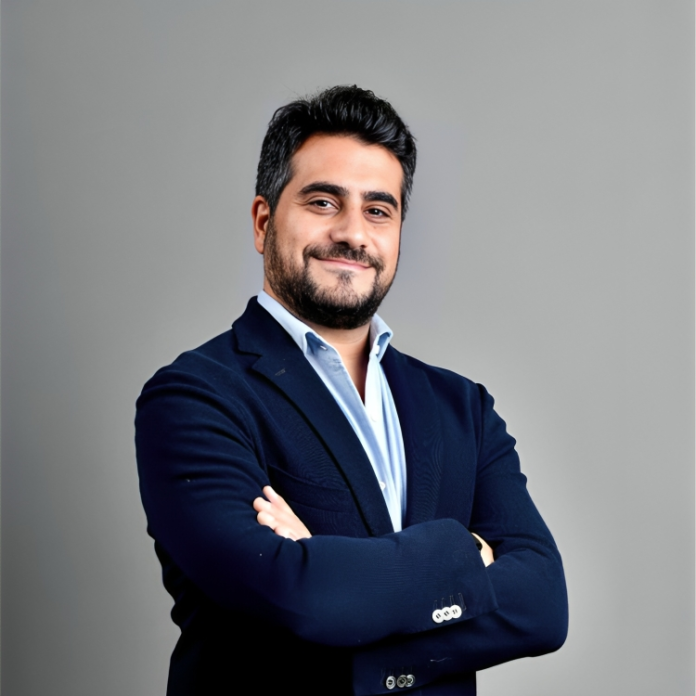Augnito has emerged as a revolutionary force in healthcare technology, redefining clinical documentation through its cutting-edge Voice AI solutions. At a time when healthcare providers face immense pressure to optimize workflows and enhance patient outcomes, Augnito offers a suite of tools designed to streamline processes, improve efficiency, and ensure accuracy.
In an exclusive interview, Mr. Rustom Lawyer highlights how the platform’s unparalleled advancements are setting a new standard for the integration of technology into healthcare practices globally.
1. Augnito is touted as a game-changer in clinical documentation. Could you elaborate on the specific innovations in its Voice AI technology that set it apart from traditional speech-to-text solutions in healthcare?
Augnito’s Voice AI technology represents a transformative advancement in clinical documentation through two groundbreaking solutions: Spectra and Omni. At its core, the technology achieves remarkable 99% accuracy without requiring voice profile training, making it immediately deployable in clinical settings.
Spectra stands out as a best-in-class voice-driven documentation solution that operates four times faster than traditional typing methods. Its sophisticated system supports over 55 medical specialties and subspecialties, from General Medicine to Oncology and Radiology. The platform’s dynamic templates system allows clinicians to upload and control predefined templates through voice commands, while custom vocabularies and macros enable personalized workflows. Organizations implementing Spectra have even reported a 21 times return on investment within just six months!
The Omni suite pushes technological boundaries even further by incorporating Ambient Clinical Intelligence and Generative AI. Its AI Scribe, for example, can capture and transcribe clinical conversations in over 37 languages in real-time, fundamentally changing doctor-patient interactions. The technology incorporates advanced features including Far Field Speech Recognition, Speaker Diarization, and sophisticated Natural Language Processing capabilities. These elements work together to convert unstructured natural conversations into structured EMR (Electronic Medical Record) data. The system’s integration capabilities are equally impressive, seamlessly connecting with major healthcare platforms like Epic and Cerner through APIs and SDKs.
What truly sets Augnito apart is its flexible deployment options. Whether healthcare facilities prefer cloud-based SaaS or on-premises installation, the system maintains industry-standard compliance and data localization while offering straightforward integration through both low-code and no-code options. This adaptability ensures that healthcare providers can implement the technology in a way that best suits their specific needs and regulatory requirements.
2. How does Augnito’s real-time speech-to-text capability translate into improved patient care? Could you share examples or statistics that highlight its impact on clinical workflows and physician efficiency?
Augnito’s impact has been substantial and measurable. A comprehensive six-month case study with Apollo Hospitals, for example, revealed remarkable improvements including:
- A 46% increase in overall productivity
- Physicians saved 44 hours per month on documentation
- A five-hour reduction in turnaround times
- 35% of clinicians reported capacity to handle more consultations
The technology helps clinicians save over three hours per day, enabling them to create detailed and highly accurate documentation at the source. This efficiency gain translates directly to patient care – doctors can maintain eye contact and engage more meaningfully with patients instead of typing notes during consultations for starters!
You can peruse findings from the case study with Apollo Hospitals, here.
3. Given the sensitive nature of healthcare data, how does Augnito ensure the security and privacy of clinical information while maintaining accessibility for healthcare professionals?
Augnito offers both cloud-based and on-premises deployment options to accommodate different security requirements and regulatory frameworks. For regions with stricter data residency requirements, like the Middle East, Augnito has developed a state-of-the-art physical hosting service alongside its cloud offering. The system ensures industry- standard compliance and data localization while maintaining seamless integration capabilities through APIs and SDKs. Augnito is also compliant with industry standards like ISO 27001, AICPA SOC 2, GDPR & HIPAA.
4. Augnito is co-designed by physicians and AI scientists. How has this collaboration shaped its usability and adoption among doctors? Were there any particular challenges or breakthroughs during the development process?
The collaborative approach to designing Augnito’s solutions has significantly influenced its usability and adoption among doctors. This partnership with personnel from the likes of MIT, IIT Bombay, and Sheffield University has led to the development of a system that understands the intricacies of clinical workflows and integrates seamlessly into existing practices without requiring extensive training or changes in user behavior. This is an intentional approach – and what we call a human-centric one – to help address challenges such as accent recognition and medical terminology comprehension, for example, resulting in a tool that is truly intuitive for clinicians across various specialties.
5. What role do you see Augnito playing in the larger framework of centralized healthcare infrastructure? How do you envision Voice AI evolving in the healthcare space over the next five years?
Augnito is poised to play a transformative role in the evolving landscape of India’s healthcare infrastructure, particularly as the industry is projected to reach approximately. $320 billion by FY 2028, growing at a 12% CAGR. The healthcare innovation sector alone represents a $30 billion opportunity, having nearly doubled since 2020. This growth is fueled by the increasing adoption of digital health solutions, with around 500 million individuals registered with Ayushman Bharat Health Accounts, and a significant rise in the use of digital health applications like e-pharmacy and telemedicine.
In this rapidly expanding market, Augnito’s advanced Voice AI technology is well- positioned to address key challenges and opportunities. By leveraging its capabilities in clinical documentation, Augnito enhances operational efficiency and accuracy, which are critical in an environment where the doctor: patient ratio is an appalling 1:1700. The integration of AI into healthcare systems is also becoming a priority for many organizations, with 45% of healthcare operations leaders considering AI implementation essential for boosting efficiency.
Furthermore, Augnito’s impact extends beyond operational efficiencies. Its ability to integrate seamlessly with existing hospital information systems supports the long-term vision of transitioning from an out-of-pocket healthcare model to an insurance-funded system. This shift is crucial for reducing the financial burden on patients, as currently about 60% of healthcare expenses in India are paid out-of-pocket. The government’s commitment to increasing healthcare budgetary allocations from 1% to 2.5% of GDP by 2025 will further support this transition.
As AI continues to evolve, its role in enhancing diagnostic capabilities will also become increasingly sophisticated. Systems will be able to analyze medical images and detect conditions earlier, which is vital for improving patient outcomes. By leveraging patient data, including genetic and medical histories, AI in precision medicine will allow for highly personalized treatment plans, especially beneficial in chronic disease management where early detection is vital. It will also play a critical role in supporting clinical decisions by analyzing extensive patient data to provide real-time, evidence- based recommendations, significantly reducing adverse events in critical care settings. Additionally, AI-enabled wearable devices will enhance remote care by monitoring vital signs like blood pressure and glucose levels in real-time, enabling immediate interventions and reducing hospital readmissions while improving patient outcomes.
















